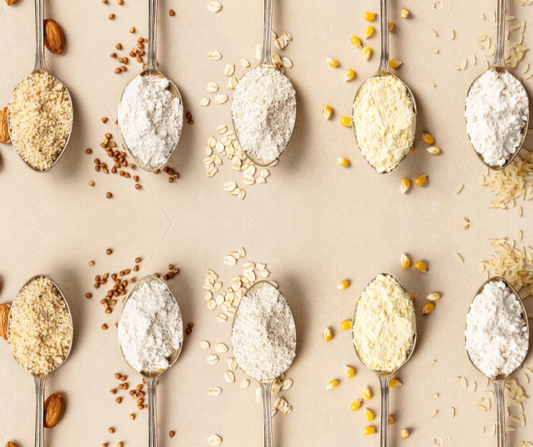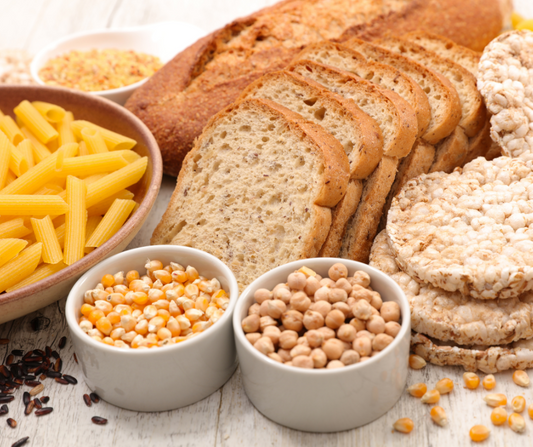Lightly Seeded Bread
Share
Ingredients
375 lightly seeded bread mix
7g (2 teaspoons dry yeast)
1 tablespoon of oil e.g., canola
430ml (1 2/3 cups) medium hot water (bath temperature)
Instructions
 Prepare your tin by lining base with baking paper and oiling sides if required
Prepare your tin by lining base with baking paper and oiling sides if required
 Weigh 375g mix into a large bowl, add yeast and oil
Weigh 375g mix into a large bowl, add yeast and oil
 Add water and stir vigorously for a minute or two until the batter turns stiff and stretchy. Note that the texture is more like a stiff batter than a traditional bread dough
Add water and stir vigorously for a minute or two until the batter turns stiff and stretchy. Note that the texture is more like a stiff batter than a traditional bread dough
 Transfer to bread tin and leave to rise in a warm place until double in bulk (see notes below)
Transfer to bread tin and leave to rise in a warm place until double in bulk (see notes below)
 Preheat oven to 180oC. Organise racks with one in the middle of the oven and one a little lower. Fill an ovenproof baking tray with water ready to go in the oven with the bread
Preheat oven to 180oC. Organise racks with one in the middle of the oven and one a little lower. Fill an ovenproof baking tray with water ready to go in the oven with the bread
 Place risen bread in preheated oven, along with tray of water underneath
Place risen bread in preheated oven, along with tray of water underneath
 Cook bread for 45 minutes, leave in the tin for a minute or two before turning out onto an oven rack
Cook bread for 45 minutes, leave in the tin for a minute or two before turning out onto an oven rack
 Cool completely before slicing. Once completely cool, store wrapped snugly in a wax wrap or in a large airtight container in a cool place, Do not store in the refrigerator as it will dry out too quickly. The loaf will last unrefrigerated for 2-3 days but after that is best sliced and frozen
Cool completely before slicing. Once completely cool, store wrapped snugly in a wax wrap or in a large airtight container in a cool place, Do not store in the refrigerator as it will dry out too quickly. The loaf will last unrefrigerated for 2-3 days but after that is best sliced and frozen
Points to note
- This recipe is designed for use in a 1kg bread tin e.g. Jamie Oliver tin as pictured. If using your own tin, make sure it has high sides and solid construction.
- Yeast likes warm moist conditions so rising over hot water in a sink or in a loose-fitting plastic bag works well. Otherwise place on a sunny window sill, on top of a heater or anywhere warm
- Breads sometimes fail because the yeast is dead. Check use-by date or check your yeast is still active by adding a little to some warm water with a dash of sugar and leaving for a few minutes. A growing froth indicates yeast is alive
- If bread is slow to rise your water temperature may be too cool. It needs to be the same temp as you would have for a bath
Bread maker instructions
Follow points 2 and 3 above. Transfer batter to the bread maker bowl, set bread maker for shortest cycle (2 hours or less) and start. Note, all bread makers are different so you will need to experiment to get the best result.






